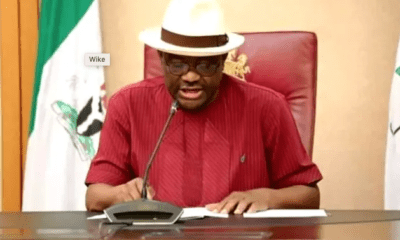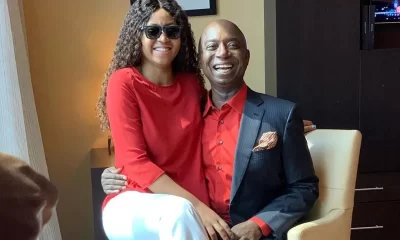Breaking News
Afenifere warns US-style “full-scale” strikes aren’t the answer to Nigeria’s terrorism
Pan-Yoruba group Afenifere has cautioned against a US military strike in Nigeria, urging diplomacy, intelligence sharing, and cooperation instead of “full-scale” war. The group says terrorism in Nigeria is complex and cannot be solved through force alone.

Pan-Yoruba group Afenifere has urged caution over proposals for direct US military intervention in Nigeria, saying the country’s terrorism problem is multifaceted and cannot be solved by a conventional “war approach.”
In a statement on Tuesday by its National Publicity Secretary, Jare Ajayi, the organisation said terrorists in Nigeria are difficult to single out because they “mingle with the people who would later become victims,” and that defeating them requires “tact, hard-track intelligence, diligence, commitment and sincerity” from those tasked to fight them.
Afenifere’s warning followed a report in The New York Times on November 5 that the United States Africa Command (AFRICOM) had drawn up contingency plans to strike in Nigeria — described in the report as a heavy option (Option A), a medium option (Option B) and a light option (Option C). Ajayi said one passage of the report was particularly alarming: the suggestion that limited air operations might not suffice and that a “full-scale campaign — similar to those in Iraq or Afghanistan” could be considered.
Reacting to the NYT story, Ajayi acknowledged concerns over violence against Christians, saying: “Christianity is facing an existential threat in Nigeria. The United States cannot stand by while such atrocities are happening.” But he warned against repeating the aftermath of US interventions elsewhere, saying: “Going by the aftermath of US’ interventions in Iraq and Afghanistan, only the enemies of Nigeria would wish for a similar thing to happen to her.”
Instead of large-scale foreign military action, Afenifere advocates intelligence and information sharing, training in modern surveillance, and — where necessary — limited airstrikes or drone strikes as outlined in Plan C (‘light’ operation). The group argued that such a calibrated approach, pursued “with sincerity of purpose,” would better achieve the aim of rooting out terrorists while minimising civilian harm.
Ajayi stressed respect for sovereignty and emphasised diplomacy and cooperation over unilateral force. He called for strategic mutual cooperation, diplomatic engagement, and a genuine commitment to protecting all law-abiding citizens regardless of faith. He also urged accountability for terrorists and their sponsors.
Quoting US Congressman Jonathan L. Jackson, Afenifere highlighted a plea for non-military remedies: “The suffering of the Nigerian people – Christian and Muslim alike – deserves compassion. The answer to the Nigeria terrorism situation is not American bombs or boots. The U.S. has to work with the Nigerian government to eliminate Boko Haram and any terrorism or criminal groups.” Jackson added that stabilising Africa requires investment in schools, clean water and opportunity rather than military force, and argued for a “diplomacy-first” approach prioritising peacebuilding, humanitarian aid and regional partnerships.
Afenifere urged those backing a US strike to consider the likely collateral damage, noting: “Bombs hardly discriminate between the guilty and the innocents, especially when they are in the same spot. What should be encouraged are intelligence gathering that would make it easier to identify desired targets and go for them directly with minimal collateral damages.”
The group also insisted that protection of all communities — Christians and others terrorised over land and resources — must be paramount. Ajayi called for a “total war on terrorists who prioritize resources over faith” and appealed for local elders to take a more active role in confronting the menace.
Opinion Nigeria News









